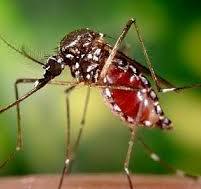by Tusi Tala, Staff Writer
Health authorities in Samoa have reported an additional 12 cases of dengue fever in the most recent week ending on July 7th. Since November of the previous year, a total of 468 confirmed cases of dengue have been documented. The majority of cases persist in the Apia region, particularly affecting individuals in the 20-29 age range. While no fatalities have been documented, health officials caution that individuals may experience two days of acute fever.
Dengue fever is a mosquito-borne viral infection that is widespread in tropical and subtropical regions around the world. The disease is caused by the dengue virus, which is transmitted to humans through the bites of infected Aedes mosquitoes, primarily Aedes aegypti. Dengue fever is a significant public health concern, with millions of cases reported annually.
Symptoms of Dengue Fever: The symptoms of dengue fever can vary in severity, but commonly include high fever, severe headache, pain behind the eyes, muscle and joint pain, rash, and mild bleeding (such as nosebleeds or gum bleeding). In severe cases, dengue fever can progress to dengue hemorrhagic fever or dengue shock syndrome, which can be life-threatening.
Prevention of Dengue Fever: Preventing dengue fever primarily involves reducing exposure to mosquitoes and eliminating mosquito breeding sites. Here are some key prevention tips:
- Use mosquito repellent: Apply insect repellent containing DEET, picaridin, or oil of lemon eucalyptus on exposed skin.
- Wear protective clothing: Wear long sleeves, pants, and socks to cover exposed skin.
- Use mosquito nets: Sleep under a mosquito net, especially during the daytime when Aedes mosquitoes are most active.
- Eliminate breeding sites: Remove standing water in and around your home, as mosquitoes breed in stagnant water. Regularly empty and clean containers like flower pots, buckets, and bird baths.
Treatment and Cure for Dengue Fever: There is no specific antiviral treatment for dengue fever, and management typically involves supportive care to relieve symptoms and prevent complications. Here are some general treatment measures:
- Stay hydrated: Drink plenty of fluids, such as water, oral rehydration solutions, or coconut water, to prevent dehydration.
- Rest: Get plenty of rest to help your body recover.
- Pain relief: Take acetaminophen (paracetamol) to reduce fever and relieve pain. Avoid nonsteroidal anti-inflammatory drugs (NSAIDs) like ibuprofen, as they can increase the risk of bleeding.
In severe cases of dengue fever, hospitalization may be necessary for close monitoring and supportive care. Early detection and prompt medical attention are crucial in managing severe dengue cases.
In conclusion, dengue fever is a serious health threat that can be prevented through effective mosquito control measures and personal protection strategies. By taking proactive steps to reduce mosquito breeding and protect yourself from mosquito bites, you can lower the risk of contracting dengue fever. If you suspect you have dengue fever or are experiencing severe symptoms, seek medical attention promptly for proper diagnosis and treatment.


